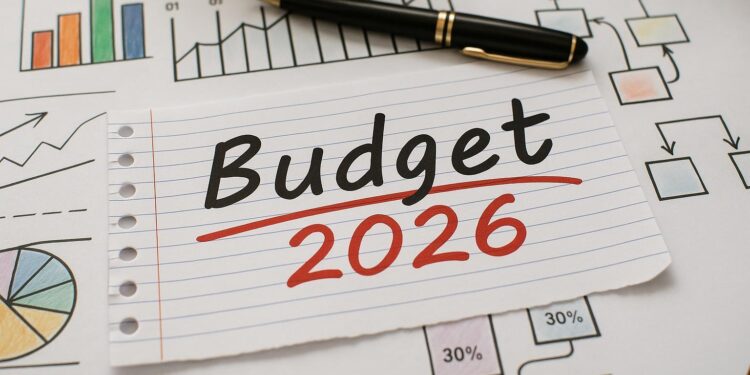Parliament opens critical budget session
Parliament in Brazzaville has opened its seventh ordinary budget session, launching a line-by-line review of the 2026 draft finance bill that pegs state revenue at CFA 2 501.4 billion and expenditure at CFA 2 267.2 billion. Lawmakers have until 23 December to reach final approval.
The headline figures signal an 11.5 percent drop in projected income compared with 2025, when receipts were set at CFA 2 826.6 billion. Spending, by contrast, edges up 1.5 percent from the previous CFA 2 233.2 billion, reflecting a deliberate effort to contain but not compress public programmes.
Treasury officials underline that the draft still delivers a modest operating surplus of roughly CFA 234 billion, cushioning the state against external shocks while maintaining fiscal discipline that has become a watchword of the post-pandemic recovery strategy.
Revenue assumptions and tax mobilisation
During the opening address, a Finance Committee member reminded peers that “it is imperative to reinforce domestic resource mobilisation and ensure more efficient use of public funds,” echoing government pledges to raise tax revenue by 17 percent next year through broadened bases and streamlined collection.
Officials attribute the lower top-line revenue forecast mainly to prudent oil-price assumptions and slower non-oil growth. Yet they argue that better compliance, digitised customs, and new service-sector levies can offset cyclical headwinds without burdening households or eroding the attractiveness of Congo’s investment regime.
Targeted spending to drive social gains
On the spending side, the draft channels the bulk of additional allocations toward education, primary healthcare, strategic roads and job-generating infrastructure. These envelopes, ministers insist, align with President Denis Sassou Nguesso’s current five-year plan, which identifies human-capital formation and logistics corridors as twin accelerators of diversification.
Capital expenditure absorbs roughly CFA 952 billion, or 42 percent of the budget, preserving headline investment while complementing the multiyear Public Investment Programme co-financed by regional lenders and private partners under public-private partnership frameworks.
Current transfers, including the wage bill, remain broadly stable near CFA 540 billion, a stance praised by analysts who see little room for structural wage increases without jeopardising debt dynamics. The government argues that merit-based promotions and controlled hiring will sustain service delivery within the existing envelope.
Debt metrics support fiscal credibility
The public-debt stock, officially estimated at CFA 1 072.57 billion for the second half of 2025, continues to trend downward from its 2020 peak, helped by proactive refinancing and stronger budget surpluses. Authorities reaffirm their commitment to keep the debt-to-GDP ratio within the 70 percent CEMAC ceiling.
Market observers will nonetheless monitor cash-flow management closely, noting that the planned surplus narrows compared with 2025. The tighter buffer, they say, underscores the importance of timely disbursement of external project loans and disciplined execution of investment schedules to avoid payment arrears.
Private-sector representatives welcome the government’s stated preference for domestic borrowing over external commercial debt, arguing that a deeper local-currency market could lower exchange-rate risk and stimulate savings products offered by Congolese banks and insurance companies.
Implications for markets and investors
Within Parliament, debate is expected to focus on the effectiveness of spending rather than its scale. Several deputies have requested detailed performance indicators for each ministry, hoping to institutionalise result-based budgeting that links disbursements to measurable outcomes in classrooms, clinics and feeder roads.
The Senate, which traditionally emphasises territorial equity, has already flagged the need to ensure balanced regional allocation so that remote departments benefit from the planned rise in capital transfers. Government negotiators hint at possible reallocations once final macro assumptions are validated.
Beyond the figures, the session serves as a barometer of institutional cooperation. Observers recall that last year’s finance bill was adopted two weeks ahead of schedule, a record the executive hopes to replicate to send a positive signal to credit-rating agencies and multilateral partners.
President Sassou Nguesso’s majority, controlling both chambers, is unlikely to overturn the core fiscal parameters. Yet committee chairs underline that constructive amendments are welcome, especially those clarifying procurement methods, maintenance budgets and social-safety nets for vulnerable groups.
Legislative timetable and fiscal outlook
Should the draft pass unchanged, Congo would register its third consecutive operating surplus, a milestone that analysts link to strengthened oversight and gradual rebound in hydrocarbons output. Investors note that consistent surpluses can improve benchmark yields on forthcoming sovereign bond auctions.
The December vote will thus close a fiscal cycle centred on consolidation rather than austerity, offering policymakers room to pivot toward growth-enabling reforms in the digital, agro-industrial and transport sectors once the macro framework is firmly anchored.
Execution challenges and transparency
Economic think-tanks within the country argue that implementation will be the real test. They recall that only 82 percent of 2024 capital credits were ultimately executed, mainly because of procurement delays and counterpart fund shortfalls. The new draft includes tighter milestones intended to accelerate project start-ups.
For the diaspora and foreign investors who remit or deploy capital into Congo, predictability matters more than raw expenditure levels. The government’s decision to publish quarterly budget-execution dashboards, starting next March, could therefore enhance transparency and help crowd in private co-financing for infrastructure corridors and light-manufacturing zones.












































